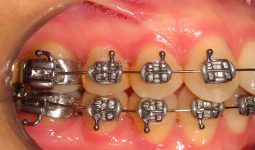Tetanophobia is one fear you probably have never heard of, but it is as real as other prevalent phobias. Tetanophobia is defined as the irrational fear of lockjaw, known as tetanus.
Someone who has this phobia can expect to deal with a very high amount of anxiety from the mere thought of lockjaw, let alone experiencing it.
In fact, the anxiety they feel may be so intense that they may have to deal with a full-blown panic attack because of it.
Although an influx of anxiety like this kind will not always be the situation for everyone who has tetanophobia, it is essential to note that it is very plausible to happen nonetheless.
Someone who experiences a full-blown panic attack because of their fear of locked jaws or tetanophobia can expect to have a high heart rate, higher blood pressure, an increased rate of breathing, trembling, muscle tension, and even excessive sweating, among many other symptoms.
Although it is not every time that panic attacks will be the case for everyone who experiences symptoms of tetanophobia, there is still a high possibility of it occurring, especially if the symptoms they have are very severe.
Someone who has tetanophobia may find that they deliberately avoid that which they are afraid of. They may take this fear to the extreme by doing all it takes to ensure that they are not in a situation that exposes them to lockjaw in any way.
For example, a person with this condition may become obsessed with their intense fear of tetanus to the point where it becomes excessive.
Such irrational thinking and excessive worry are likely to be one of the major causes of their mental stress.
Although someone who has this condition may do all it takes to actively avoid the object of their fear in an attempt to help them lessen their chances of suffering from any immediate anxiety, it is not an advisable coping mechanism.
Doing this may cause their symptoms of tetanophobia to worsen in the long term because they would be unknowingly justifying their fear of locked jaws to themselves by actively avoiding it.
Symptoms of Tetanophobia
As is the case with all the phobias known to man, someone with the fear of locked jaws or tetanophobia can expect to deal with anxiety as the most prominent symptom of the fears they have.
Also, as mentioned previously, their anxiety may become so extreme that they may have to endure a full-blown panic attack because of it.
Depending on how severe the panic attack is, they may even have to be hospitalized. However, the prominent symptoms vary from person to person and may depend on many factors.
Furthermore, an individual with tetanophobia may have to go to painstaking efforts to ensure that they do not come in contact with any of their fear in any way.
This avoidance behavior may mean that they not only have to avoid areas that may cause them to deal with locked jaws, but they may also take active steps to prevent it by adopting a more hands-on approach.
Below, you will find some of the most common symptoms of fear of lockjaw or tetanophobia;
- Anxiety when you think of Lockjaw
- I am overly concerned about the possibility of developing Lockjaw.
- Inability to cope with the anxiety that comes with the phobia
- Muscle tension, sweating, and shakiness
- May experience severe or mild panic attacks
Causes of fear of lockjaw or Tetanophobia
There are no specific causes of tetanophobia, and that appears to be the case for all phobias. Nevertheless, genetic and environmental factors may be preeminent in developing the fear of lockjaws.
For example, if a person has a family history of specific phobias, mental illness, or anxiety disorders, then they may have a higher risk of developing tetanophobia.
This possibly will be due to them already having a genetic predisposition to suffer from mental illness in general.
If a person were to be born with such genetics, then all it may require for them to develop a full-blown case of this phobia may be an experience of some traumatic event.
Essentially, any emotionally stressful or painful event that has to do with the various fears linked with tetanophobia in one way or another may be enough for someone to get a phobia of lockjaw so far as they have the right genetics.
Although we are unaware of the specific causes of tetanophobia, the general assumption amongst most mental health professionals is that environmental and genetic factors play very crucial roles in the development of any phobia or mental disorder.
So, taking a closer look at the two different parameters listed above may shed some light on whether you may have a chance of developing tetanophobia.
Fear of lockjaw (Tetanophobia) Treatments
Just as you may have learned already, there are no specific causes of tetanophobia or any other phobia known to man.
There are also no definitive treatments available for the treatment of this condition or any other phobia, either.
Nevertheless, some forms of treatment have proven to be helpful for the treatment of tetanophobia symptoms.
Some useful treatment methods include exposure therapy, psychiatric medications, and cognitive behavioral therapy (CBT).
Exposure Therapy for Fear of Lockjaw
Exposure therapy has become one of the most commonly used forms of treatment for people dealing with various types of phobias.
Exposure therapy functions by having the therapist expose the patient with fear of lockjaw to their fear over a specific period.
With regards to fear of lockjaw (tetanophobia), the therapist may have to “expose” the patient to their fear of lockjaw by educating them on the subject of lockjaw or tetanus, among several things.
All of these will be in an attempt to help desensitize the person dealing with the fear of lockjaw to their fear by constantly exposing them to it.
At the end of the treatment method, the patient should have little or no fear of lockjaw as they have been educated on it and exposed to it in various safe ways over the treatment duration.
Cognitive-behavioral Therapy Treatment for Fear of Lockjaw
Cognitive-behavioral therapy (CBT) is another very common type of treatment that is usually used to help those who may be suffering from generalized anxiety disorder (GAD) and those dealing with obsessive-compulsive disorder (OCD) and many other mental health conditions.
Moreover, it may also prove to be an effective treatment for those who are suffering from phobias, such as tetanophobia.
The way CBT works is by having the therapist talk the patient into uncovering why it is that they feel, think, and act the way they do about the fear of lockjaw.
Someone with a fear of lockjaw or tetanophobia who chooses to partake in CBT may expect to learn why it is that they think the way they do about their fear, among other things.
Understanding such things may help someone with lockjaw or tetanophobia take a more pragmatic approach when they think about their fear of lockjaw.
If you feel that you may have tetanophobia or whenever you notice any of the symptoms that have been described above, then it is the right time for you to talk to your doctor and get a proper diagnosis and treatment.
Usually, a person must have dealt with a fear for six months or longer to be considered a phobia. Also, such fears must have affected essential areas of a person’s life. However, it is never too early to get help for any phobia.
We hope that this article has been of help to you. Do not hold back from leaving a comment below; let us know what you think. We look forward to hearing from you.








